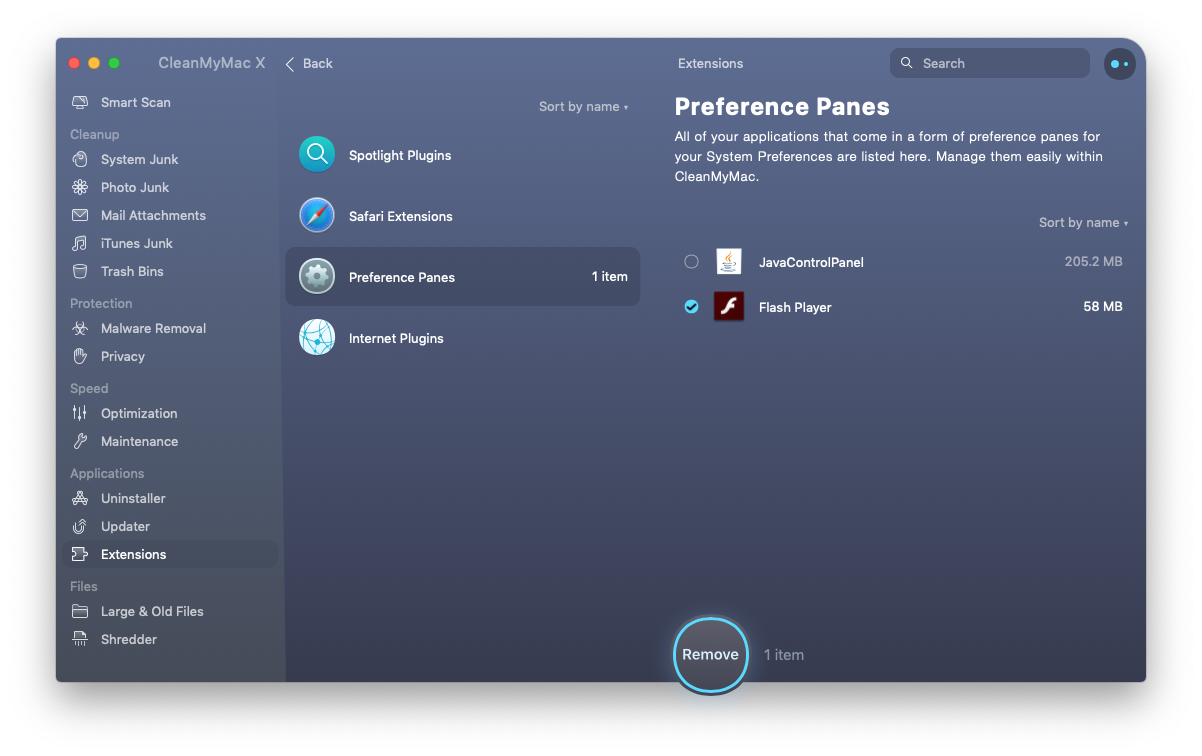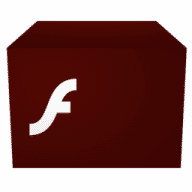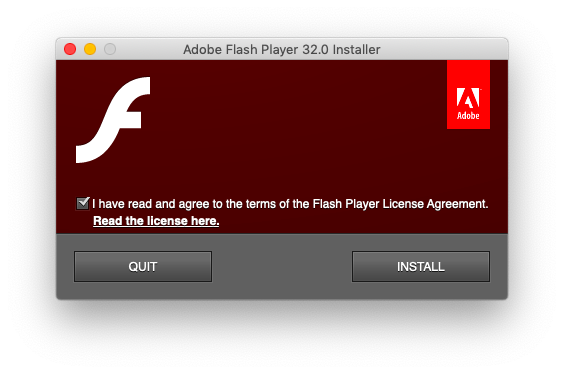Adobe Flash Player is a free software plug-in used by web browsers to view multimedia, execute rich Internet applications, and stream video on your Mac.
Adobe Flash Player is the most popular multimedia player plug-in available. However, recently there have been security concerns which has threatened its popularity as users seek safer alternative solutions. Opera, Firefox and Chrome contain built-in versions of Flash running in sandbox mode. This method is safer than running Flash as a plugin. However, currently the reality is that you still may need the Adobe Flash Player on your Mac because many websites will not work well if you uninstall it. Here I’ll show you how to install Adobe Flash Player and how to set it up correctly.
How to install Adobe Flash Player on your Mac.
- After downloading Flash Player, close all browsers. Locate the Flash Player install file. Unless you have specified otherwise, the file is saved in your Downloads folder. Double-click the installer file to begin the Flash Player installation. Choose Window Downloads or press Option+Command+L.
- How to Enable Flash Player on Mac. This wikiHow shows you how to enable Flash Player on in Safari and Chrome for macOS. If you're using Safari, you'll need to download and install Adobe Flash Player from Adobe's website.

1. Go to http://get.adobe.com/flashplayer/ to download the Adobe Flash Player installer.
The Adobe Flash Player update virus is one of the common ways cybercriminals try to deposit additional harmful code onto a Mac. It usually operates in tandem with such threats as bogus system utilities that report non-existent problems and thus attempt to manipulate users into activating the licensed copy of the scareware.
2. By default, the installer package will be downloaded to your “Downloads” folder.
3. Select the file on your Mac and double click to install it.
4. Select “Allow Adobe to install updates (recommended)” and click “DONE” to complete the installation.
If you installed Adobe Flash Player, but still cannot view online videos on certain websites, you need to check Adobe Flash Player on your browsers.
How to set up Adobe Flash Player on various browsers.
Safari
1. Launch Safari and go to the Apple menu bar and click Preferences.
2. Select the Websites tab and select On for “When visiting other websites.”
3. Refresh the browser tab, or restart the browser.
Google Chrome
1. Launch Chrome and type chrome://settings/content in the address field.
2. Select “Ask first (recommended)” and turn it on.
3. Refresh the browser tab or restart the browser.
Opera
1. Launch Opera and go to the Apple menu bar and click Preferences.
2. Select the Websites tab and then select “Allow sites to run Flash”
3. Refresh the browser tab or restart the browser.
Firefox
1. Launch Firefox and go to the Apple menu bar and click Tools – Add-ons.
2. Click the Plugins tab and turn the “Shockwave Flash” to “Always Activate.”
Note: (SWF (Shock Wave Flash) is a special format created by Macromedia, which has been acquired by Adobe. It is widely used in web design, animation production and other fields.)
For enhancing the user experience and security, Adobe is always trying to improve Adobe Flash Player. However, sometimes when you view a website, a Flash Player upgrade popup appears. Most people would click the “update” button to update their Flash Player, but this could be a false popup used by hackers to compromise your Mac. This is a method hackers use to trick you into downloading adware and malware through a false popup.
Be careful and don’t trust any automatic updates of Adobe Flash Player. Here I will tell you how to install real Flash Player updates and set it up.
How to update Flash Player on Mac safely
1. Go to the Apple menu bar and select System Preferences.
2. Select Flash Player.
3. Select the Updates tab and select “Allow Adobe to install updates (recommended)”. (Note: The Flash plug-in is officially updated 1~2 times a month, so selecting this option avoids frequent update.)
4. You may now notice that the Flash Update settings now shows NPAPI and PPAPI plugins. Let me explain them.
NPAPI – used by Safari, Firefox
PPAPI – used by Chromium, Opera and Chrome (Chrome’s implementation is built in)

5. Click Check Now to confirm that you currently have the latest version installed.
If you had clicked a false popup and downloaded adware, don’t worry, the Apple App Store has many antivirus apps, such as Trend Micro’s Antivirus One, that you can use to do a free scan.
Follow the steps below in case you downloaded a fake Adobe Flash Player.
1. When you first install Antivirus One, click “Pattern Update” to make sure your virus pattern is up to date. We suggest you update the virus pattern every day.
2. After the first installation, we highly suggest you perform a full scan of your Mac to check all files for possible infections. The Full scan will take more than one hour.
3. If you still find adware and a full scan has not found any viruses, we recommend you use Adware Cleaner. You can access Adware Cleaner in the left panel of the Antivirus One window.
How to uninstall Adobe Flash Player
Adobe Flash Player for the Mac is a plug-in, not a Mac OS X application. When you try to uninstall Adobe Flash Player from your Mac, you might find that this plug-in is not so easy to delete. For example, you might see this message:
Cannot find Adobe Flash Player in your Applications folder.
In this case, Adobe Flash Player could not be removed and no reason was given. The following steps show how to uninstall Adobe Flash Player with no remaining parts.
1. Go to the /Applications/Utilities/ folder on your Mac and double-click the Adobe Flash Player Install Manager app.
2. Click Uninstall to begin the process.
3. Type the password and click Install Helper.
4. If your browser is running, the following window will appear. Select “Force Close All” to continue.
5. After the uninstaller removes the Adobe Flash software from your Mac, click Done.
Related posts:
Get all best apps via Setapp
By the simple virtue of browsing the web over the years, nearly all of us have seen a variety of pop-ups asking us to download or upgrade Flash Player for Mac. Usually, there’s little explanation involved, which leaves you thinking, “Do I really need to install Adobe Flash Player on Mac?”
Adobe Flash is a proprietary software that started in the late ‘90s as a way to include advanced interactivity, gaming functionality, and video capability into your browser. By the early 2000s, Flash was supported by every major browser and seemingly ran the internet. That is until Steve Jobs himself declared a war on it.
In a press release published by Apple in 2010, Steve Jobs laid out his reasons for not integrating Adobe Flash in the Safari browser by default. His main criticisms of the platform were its closed proprietary nature, slow updates, weak security, and increasing availability of open standards that were arguably better equipped to handle browser interactivity.
For a long time, Adobe Flash security issues were the primary reason most developers discouraged people from installing the application. As you may have noticed, oftentimes Adobe Flash Player download for Mac pop-ups haunt you on the least trustworthy websites. It’s highly likely that those were hackers using Adobe Flash installers to find a way into your system.
Fortunately, in the last 10 years, the popularity of Adobe Flash has decreased significantly. By now, 95% of all websites have switched to the open HTML5 standard. This even includes all the major video companies, such as Vimeo, Netflix, Facebook, and YouTube. In fact, the popularity of the Flash technology has declined so much now that Adobe decided to end its Flash support in 2020.
So is Adobe Flash Player safe? Generally, yes, given that you download Flash Player for Mac from Adobe’s official website. And sometimes there is no way around installing Flash as you might still need it to run that lagging 5% of the web properly. Whatever the reason, below we’ll discuss how to manage Adobe Flash safely and securely.
Mac problem that needs a quick fix?
Get Setapp and install 150+ apps in one pack, a solution catering for every issue you have with your Mac.
How To Install Adobe Flash Player On Mac
If you absolutely need to download Adobe Flash Player for Mac, you should at the very least do it securely. Good tips to note are install Flash only when required, disable it when not in use, update it regularly to get the latest security patches, and delete it completely as soon as you can make the full switch to more modern web technologies.
Safely install Adobe Flash Player on Mac
/i.s3.glbimg.com/v1/AUTH_08fbf48bc0524877943fe86e43087e7a/internal_photos/bs/2019/4/w/fRBh7bTKS18vNP5tVDdA/print-2019-08-12-18-36-13-3ny7k.jpg)
If there would be only one takeaway from reading this article, it should be: never ever download Flash Player for Mac from unrecognized websites.
Using Macs in general is very safe. But by far the most popular way for hackers to get into your system is to persuade you to download malware that’s masking itself as a well-known program. And Flash Player for Mac tops the list, having the worst security record out of any software. Moreover, Adobe Flash is the number one reason Macs crash overall.
So when you are about to install Adobe Flash Player on Mac, you should:
Go to get.adobe.com/flashplayer (this is the only official Flash Player for Mac distributor)
Click “Download now”
Navigate to your Downloads folder and open the .dmg file
Proceed through the installation instructions
Restart the browser, after which Adobe Flash Player for Mac should be activated
Update Adobe Flash Player for Mac regularly
Once you have Flash Player installed, you need to remember to update it regularly (e.g. once a month) to avoid any security issues. To check whether there’s a new version of Flash available:
Open System Preferences
Click on the Flash Player and navigate to the Updates tab
Select Check Now or Install Now if there’s an update available
Disable Flash when not in use
When you encounter a website that doesn’t work properly without Flash, proceed to install the player from the official (very important) website as per the steps above. But for complete security, turn off Flash right after you use it and enable it only when there’s no workaround.
To disable Flash Player for Mac in Safari:
Go to Preferences and then Websites
Scroll down to Plug-ins and uncheck the Adobe Flash Player
Similarly, disabling Flash can be done in Content Settings in Chrome and Addons > Plugins in Firefox.
Completely uninstall Flash Player for Mac
There’s a lot of confusion with regards to deleting Flash Player. As we’ve seen, when you download Flash Player for Mac, it doesn’t install itself as an app, but rather integrates into your System Preferences.
Hence removing Flash Player is not as easy as just dragging it to the Trash. Adobe has a whole page devoted to the uninstallation process and makes you download a separate tool to delete Flash properly.
Adobe Flash Player Download Mac Catalina
To remove Flash Player the Adobe way:
Download the uninstaller for your macOS
Launch it as any app and follow the instructions
Restart your Mac
However, due to the Flash Player’s pervasive presence on your Mac, it’s highly recommended that you use a professional third-party uninstaller like CleanMyMac X.
Get a pro uninstaller for Mac

With CleanMyMac X, unneeded software and junk will be gone from your computer in a single cleanup. An all-mighty cleaner that deserves your attention.
To uninstall Adobe Flash Player on Mac with CleanMyMac X:
Navigate to the Uninstaller tab
Select Adobe from Vendors
Check the box next to Flash Player and click Uninstall
Flash Player Download Mac Os
Recover files lost to Flash Player
Flash Player Download Mac Free
Sometimes you simply can’t prevent the malware from getting into your system. And most of the time you only realize that infiltration happened after the fact, when you discover some of your files completely gone.
Good news is you might be able to recover your files if you act quickly. As soon as you notice any files missing, install a professional Mac recovery app like Disk Drill and follow this process:
Launch Disk Drill app from Applications
Find your hard drive in the list and click Recover
Choose one of the recommended options, from disabling system protection to connecting another Mac, to allow Disk Drill to recover lost files
Finally, to stop compromised apps or files from getting into your system, use a malware protection utility in CleanMyMac X on a regular basis.
To scan your Mac for viruses with CleanMyMac X:
Select the Malware Removal tab
Click Scan
Delete anything suspicious that shows up in the report
Flash Player Download Mac Pro Free
Overall, there are very few reasons to download Flash Player for Mac today. Nearly all modern websites have switched to community-supported standards like HTML5, CSS3, and JavaScript. But if you need to use Flash, make sure to download it from the official source and turn it off when not required to protect yourself from its security flaws.
In addition, make sure you’re fully protected from any worst-case scenarios by checking for malware with CleanMyMac X and recovering lost files with Disk Drill. And if you use Google Chrome, you can avoid Adobe Flash Player download for Mac altogether as it comes pre-installed in the browser.
Don’t feel like spending money on buying all the professional apps? Both CleanMyMac X and Disk Drill are available for you to try for free, along with more than 150 high-end Mac apps and utilities, through Setapp — the best platform for curated Mac apps. Adobe Flash might be on its way out, but in the meantime, you should definitely verify that you’ve been using it responsibly all this time.
Meantime, prepare for all the awesome things you can do with Setapp.
Read onFlash Player Download Mac Os X 10.9.5
Sign Up
Flash Player Download Macbook Air
